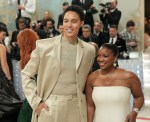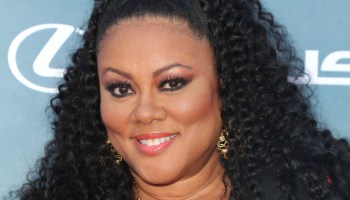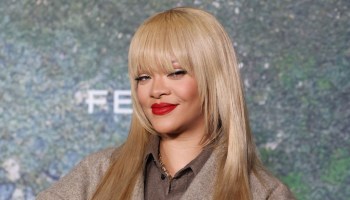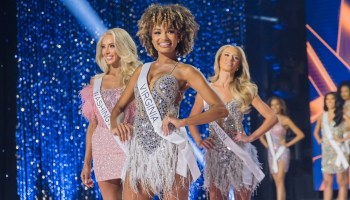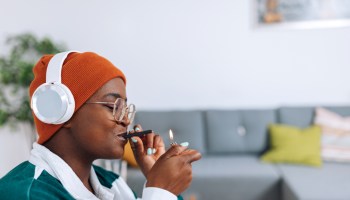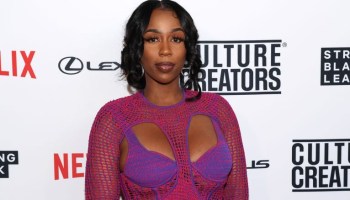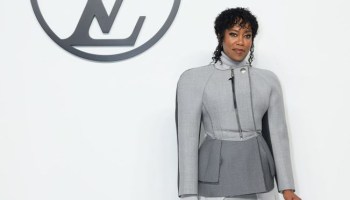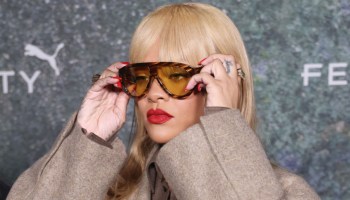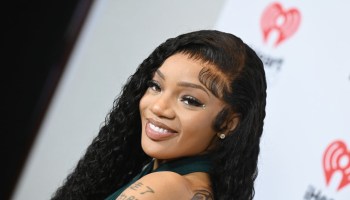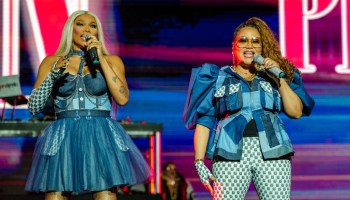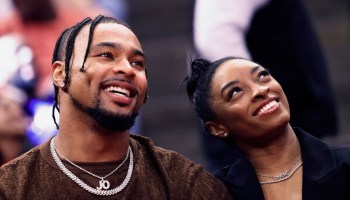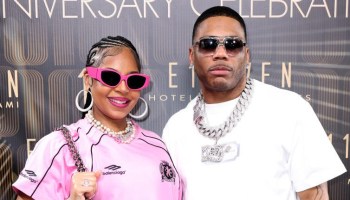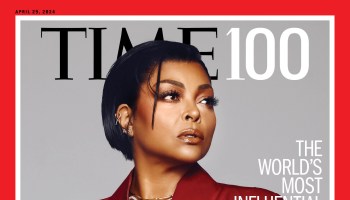HelloBeautiful.com’s “Base Level” column features the hottest new artists we’re buzzing about. Before they make it to the summit of superstardom, we spot them at base level–the beginning of their hopeful journey to the top.
There’s something so warm about East African artist Somi. Her voice, presence and demeanor is so inviting. When we first heard her music, we were enlightened by her worldly sound, that can be attributed to her Jazz and African roots. Her compelling lyrics, that incorporate topics ranging from female empowerment to love, are beautifully crafted on her major label debut, “The Lagos Music Salon.” The new album captures the essence and feel of Lagos both musically and lyrically.
We caught up with Somi, who’s promoting the critically acclaimed project, to go deeper than the facade and find out what inspires the African beauty.
Name: Laura is my first name. Kabasomi is my middle name and my last name is Kakoma
Hometown: I lived in Zambia for a while but spent most of my formative years again in Champagne, Illinois. My dad was a professor there, but my family’s originally from Uganda.
When did you find your voice and decide that you wanted to pursue your passion?
I had this opportunity after college, I had six credits left and I did this research/fellowship and it was the first time that I really could let go of this obsession of trying to understand the place I was from, but I really didn’t have a clear understanding of what it was. I spent that time there and it really helped resolve that kind of, bi-cultural, I’m American and I’m African and being comfortable with being both for the very first time. It was really more about my identity that I just needed to come to terms with. I had always been in music. I studied the cello from the time I was 8 years old. I did musical theatre in college. But, I never thought it was really a viable career path. I’m also a first-generation American, so family isn’t going to be like, ‘Yes, be an artist.’ They were like, go and be a lawyer or engineer. I didn’t think it was a path and it wasn’t something I saw. There were no professional artists in the family. It was just something I’d always fantasize about. I moved back in New York after my time in Tanzania and I started working with different people. And, I believe that the universe puts things in front of you as reminders that it’s the right path.
What was your first break?
There was this producer or friends of mine who was putting together a quick track. One of them was an MC and one was a producer. They invited me to come sing a hook. Then, that song, was picked up by KRS-One on his street soldiers radio show. He would play it every Sunday as a way to start the conversation and engage the whole issue of police brutality and Guiliani and all these things. Suddenly, The Source called and wanted to do a feature and suddenly Mos Def called and wanted us to participate in “Hip Hop 4 Respect.” My friends who were more in hip-hop were freaking out, but I didn’t know who anybody was, but I remember being like, ‘this is amazing.’
How do you describe your music and its message?
I’m a songwriter. I don’t try to focus so much on genre. What I’m so excited about this new record is that it deals with a lot of different genres. If you listen to one track, it may sound a lot like jazz. There’s another song that may sound like hip-hop. For me, as a songwriter, I just did what each song needed musically. I think first and foremost, it’s just about being honest with yourself. Someone out there will connect with you. I don’t think I have a message, but I think it’s about what I’m inspired to write-through my own personal experience or the experience of people around me. Something that people tell me is that I sing a lot about women’s issues and women’s stories, which isn’t something that I ever really sought out to do. I love being a woman and the strength of women, but by no means, it’s something I went out for. But, I find that it’s something that, at times, is discussed. There’s pride in that or they locate themselves in that and I’m proud of that. If my message is suddenly about women’s empowerment, then I’ll take that too. It’s also about helping people re-imagine what African art and music can be.
How is the African culture different from American culture music-wise?
I think music is a universal language. So, it’s really the same thing. You connect to it or you don’t. Either it moves you or it doesn’t. I don’t know anything’s different in terms of the way we engage with music. I think all people everywhere have a love of music, but I will say, in terms of musical expression that comes traditionally, socially and politically, and culturally, it manifests itself in different ways. The thing about Africa is that music is so apart of different parts and maybe this is just Black communities in general, but if there’s a wedding, everyone’s singing, if there’s a death, everyone’s singing. I feel like my family is constantly breaking into song and that’s my family here and back home.
Order Somi’s “The Lagos Music Salon” (in-stores now), here.
RELATED STORIES:
BASE LEVEL: Find Out How Brave Got Her Name & Why It Still Fits!
BASE LEVEL: Sincerely XO Reminds Us Just How Much We Miss Girl Groups







